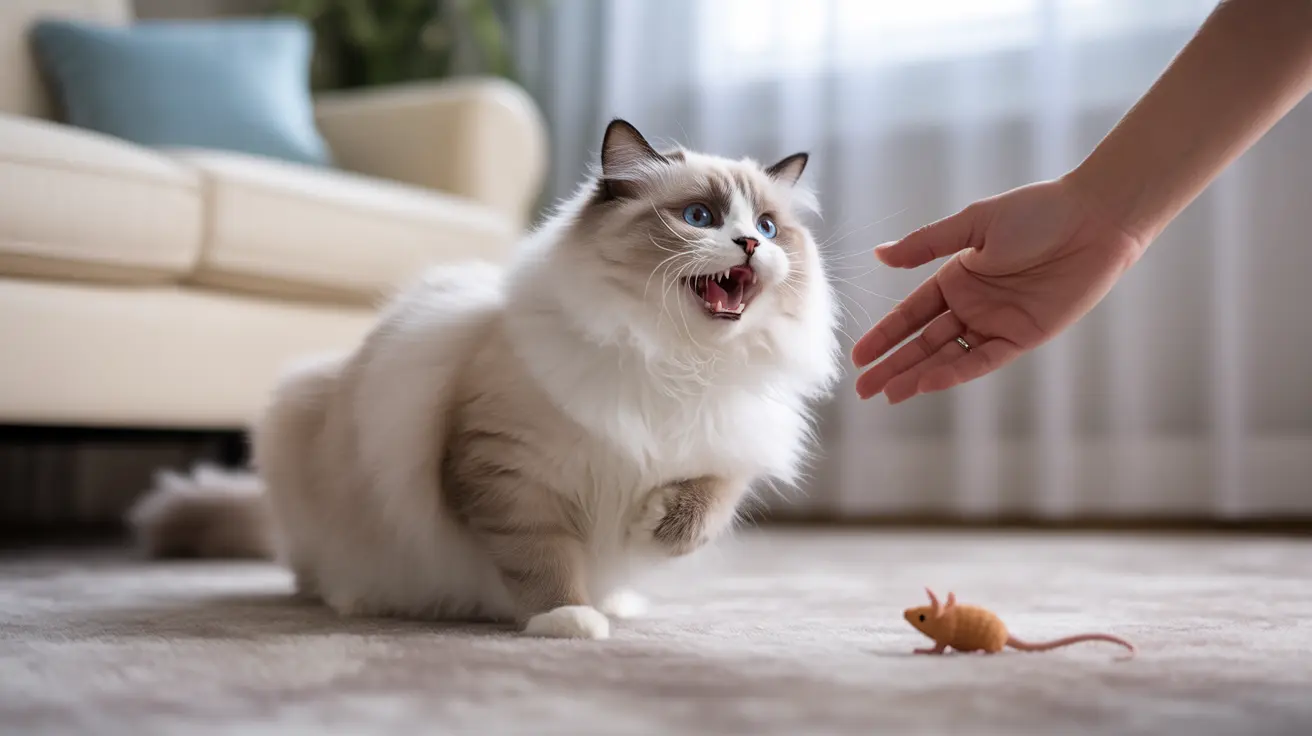When your cat starts displaying unusual behavior, it can be both concerning and confusing. Whether it's excessive hiding, sudden aggression, or changes in daily routines, these behavioral shifts often signal underlying issues that require attention. Understanding why your cat is acting strange is crucial for maintaining their health and happiness.
As responsible pet owners, recognizing the difference between normal feline quirkiness and genuinely problematic behavior can help ensure timely intervention when necessary. Let's explore the various reasons behind unusual cat behavior and learn how to address these concerns effectively.
Common Signs of Strange Cat Behavior
Physical and Behavioral Changes
Cats may exhibit various unusual behaviors that can indicate problems. These include excessive grooming, unusual vocalizations, changes in appetite, and irregular litter box habits. Pay particular attention if your cat starts hiding more than usual or shows sudden changes in their activity levels.
Changes in Social Interaction
A typically social cat becoming withdrawn, or a reserved cat suddenly demanding attention, can signal underlying issues. These behavioral shifts might indicate stress, illness, or environmental changes affecting your pet's well-being.
Medical Causes of Unusual Behavior
Physical Health Issues
Many strange behaviors can be traced back to medical conditions. Urinary tract infections, dental problems, thyroid issues, and arthritis are common culprits that may cause your cat to act differently. Any sudden behavioral change warrants a veterinary check-up to rule out medical causes.
Neurological Concerns
Sometimes, unusual behavior stems from neurological issues. Conditions like feline hyperesthesia syndrome can cause dramatic behavioral changes, including skin rippling, sudden bursts of energy, or self-directed aggression.
Environmental Factors Affecting Cat Behavior
Stress and Anxiety Triggers
Cats are sensitive to changes in their environment. Moving to a new home, introducing new pets, or even rearranging furniture can trigger stress-related behavioral changes. Creating a stable, enriching environment helps minimize these reactions.
Territory and Resource Issues
Conflicts over resources like food bowls, litter boxes, or favorite resting spots can lead to strange behavior. Ensuring multiple access points to essential resources can help reduce tension and unusual behaviors.
Solutions for Managing Strange Cat Behavior
Creating a Supportive Environment
Provide your cat with safe spaces, consistent routines, and appropriate environmental enrichment. This includes vertical spaces for climbing, scratching posts, and interactive toys to keep them mentally and physically stimulated.
Professional Intervention
If behavioral changes persist, consult with a veterinarian or certified animal behaviorist. They can help identify underlying causes and develop appropriate treatment plans, which may include behavior modification or medical intervention.
Frequently Asked Questions
What are the common medical reasons my cat might suddenly start acting strange?
Common medical reasons include urinary tract infections, dental disease, arthritis, thyroid problems, and digestive issues. Any sudden behavioral change should be evaluated by a veterinarian to rule out medical conditions.
How can environmental stress or changes cause my cat to behave unusually?
Environmental stressors like moving, new pets, changes in routine, or household renovations can trigger anxiety and unusual behavior in cats. Cats thrive on routine and predictability, so any disruption can affect their behavior.
Why is my cat hiding more often and grooming excessively or not at all?
Increased hiding and changes in grooming habits often indicate pain, illness, or anxiety. These behaviors can be responses to stress, medical conditions, or social conflicts with other pets in the household.
When should I be concerned about aggressive or vocal behavior changes in my cat?
Sudden aggression or changes in vocalization patterns warrant immediate attention, especially if accompanied by other behavioral or physical symptoms. These changes could indicate pain, illness, or significant stress.
How can I help my cat adjust when it acts weird after I return from a trip or a change in routine?
Maintain consistent feeding and play schedules, provide extra attention and reassurance, and gradually reintroduce normal routines. Creating a calm, predictable environment helps cats adjust to changes more easily.
Conclusion
Understanding why your cat is acting strange requires careful observation and often professional guidance. By paying attention to behavioral changes and addressing them promptly, you can help ensure your cat maintains good physical and emotional health. Remember that early intervention is key to preventing minor issues from becoming major problems.






